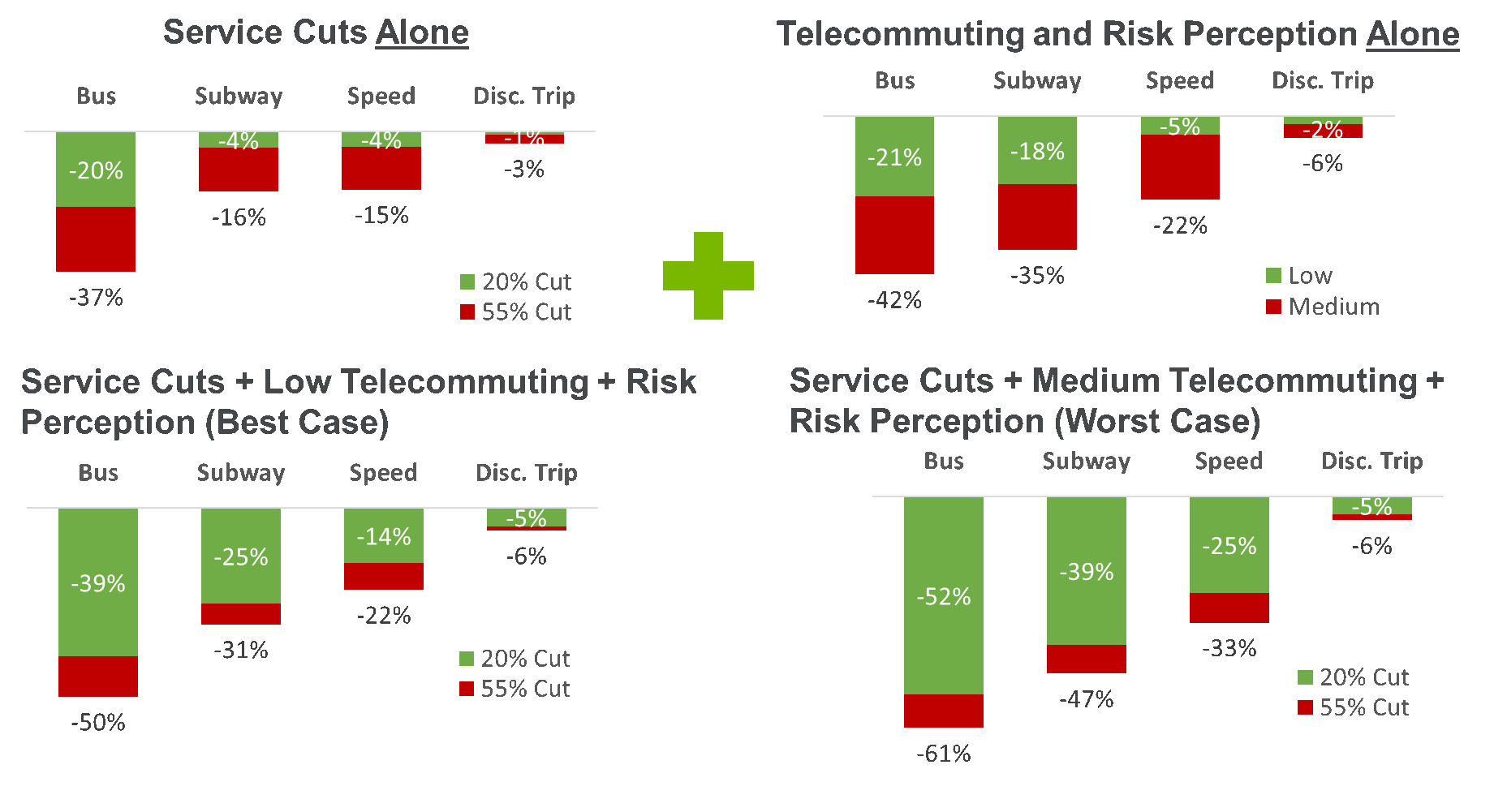COVID Impact on Transportation
Published: 2021 November
Discover the impact of service cuts, telecommuting, and COVID risk perception on ridership and congestion in Chicago.
Working closely with Chicago Transit Authority (CTA), the Argonne National Laboratory Systems and Modeling for Accelerated Research in Transportation (SMART) Mobility workflow was deployed to quantify the impact of multiple COVID scenarios on transit ridership and system-level energy, greenhouse gas (GHG) emissions and the economy.
Key findings of the report include:
- Even with no service cuts, expected growth in telecommuting and lingering risk concerns around transit will impact ridership and other road users, causing:
- Increased congestion, with an average of 1.5 to 8.5 more minutes on road for drivers for each trip;
- An approximately 20 to 40 percent decline in ridership; and
- Up to $3.7 billion economic impact at the regional level.
- Service cuts will directly impact CTA service and jobs but will cause a ripple effect in the economy, including:
- Reductions in shopping, dining, and entertainment (between $112 million and $327 million) and thousands of jobs losses in industries that are already severely impacted by COVID; and
- A combined economic impact between $1 billion and $3.4 billion.
- If risk perception remains and employees continue to telecommute at least once each week, then:
- The economic impact from service cuts grows substantially—between $4.7 billion and $7.2 billion;
- The increase in fuel use and GHG would reverse substantial recent gains in vehicle efficiency; and
- Road speeds would be reduced up to 33 percent in the city of Chicago.
As a result, continued COVID risk perception on transit, potentially due to virus variants, vaccine duration, and other diseases, has the potential to disrupt public transportation ridership more than deep service cuts or telecommuting.
